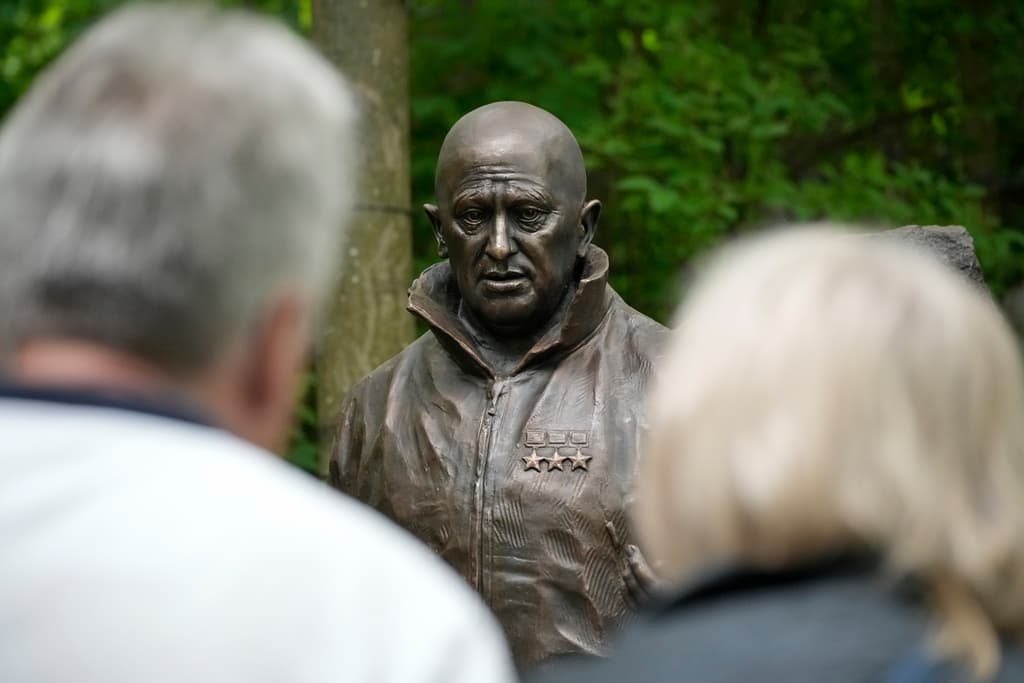A year after the Wagner group's armed uprising in Russia, its deceased leader Yevgeniy Prigozhin remains in the memory of many Russians as a "great man".
He did a lot for Russia during a difficult time, says Aleksandr Uljanov, who spoke to AFP.
During a few intense hours during last year's midsummer weekend, the world's attention turned to Russia when mercenaries from the Wagner group, led by Yevgeniy Prigozhin, marched towards Moscow. It was the largest uprising against the country's president Vladimir Putin during his years in power.
A few weeks after the betrayal of Putin, Prigozhin and several other Wagner leaders died when a plane crashed or exploded under mysterious circumstances outside Moscow. But the Wagner leader's deeds live on in the memory of many Russians, and a statue of him has been erected on his grave in St Petersburg.
He did a lot for Russia in a difficult time, says the 60-year-old caretaker Aleksandr Uljanov to AFP's correspondent in Russia.
If people remember him, he lives.
Key role in the war in Ukraine
The Wagner group has played a significant role in the Russian war of aggression in Ukraine. Soldiers from the group have been involved in several of the longest and bloodiest battles, including the battle for Bakhmut.
Prigozhin's decision to turn his men against Moscow was built up over several months. He complained, among other things, that his forces were given too little ammunition for the battles and that the Russian military leadership was sending Wagner soldiers to their deaths.
Prigozhin openly accused the then Defence Minister Sergey Shoigu of corruption and general incompetence. The final straw for Prigozhin was a message that Wagner's soldiers would have to sign contracts with the regular Russian army.
"March for justice"
This made Prigozhin see red and order a "march for justice" towards Moscow. Wagner's forces temporarily took control of the streets in several major cities and clashed with the Russian military, resulting in several Russian helicopters and planes being shot down on Russian soil. Dozens of police officers were killed.
Vladimir Putin called Prigozhin and his men traitors and described the uprising as a stab in the back.
The Wagner forces got about halfway to Moscow before Belarus, acting as mediator, got them to stop. The soldiers were then given a choice: to move to Belarus or join the regular army.
Suspicions that the Kremlin was behind Yevgeniy Prigozhin's death have consistently been denied. Putin has praised Prigozhin after his death, calling him a "talented businessman" who made "serious mistakes".






